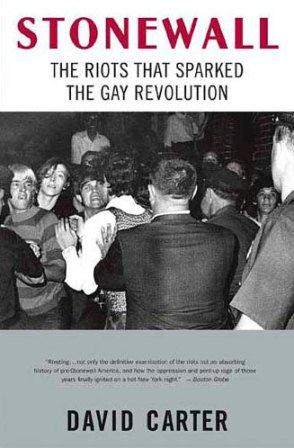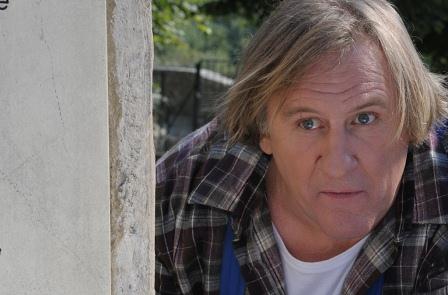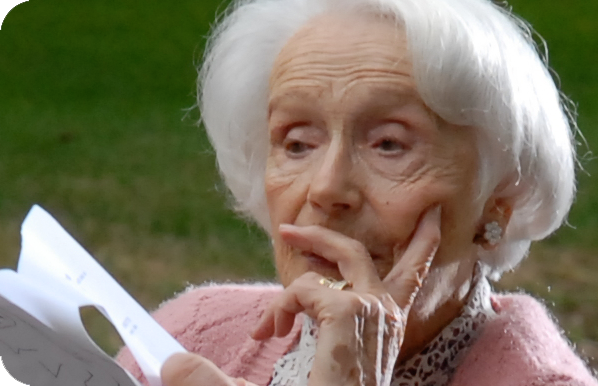An exchange of opinions between a supporter of the Occupy Wall Street protests, right, and passersby attracts attention at Zuccotti Park in New York on Tuesday, Oct. 25, 2011. Some businesses and residents are losing patience with the protesters in the park, the unofficial headquarters of the movement that began in mid-September. (AP Photo/Bebeto Matthews)
An exchange of opinions between a supporter of the Occupy Wall Street protests, right, and passersby attracts attention at Zuccotti Park in New York on Tuesday, Oct. 25, 2011. Some businesses and residents are losing patience with the protesters in the park, the unofficial headquarters of the movement that began in mid-September. (AP Photo/Bebeto Matthews)
A protester post a sign about the cost of war, reflecting the range of issues found among participants of the Occupy Wall Street protest at Zuccotti Park, Tuesday, Oct. 25, 2011 in New York. Some businesses and residents are losing patience with the protesters in Zuccotti Park, the unofficial headquarters of the movement that began in mid-September. (AP Photo/Bebeto Matthews)
A protester holds a sign asking for donations for pets at the Occupy Wall Street protest at Zuccotti Park, Tuesday, Oct. 25, 2011 in New York. Some businesses and residents are losing patience with the protesters in Zuccotti Park, the unofficial headquarters of the movement that began in mid-September. (AP Photo/Bebeto Matthews)
Supporters and visitors line up to receive free meals at the Occupy Wall Street protest in Zuccotti Park, Tuesday, Oct. 25, 2011 in New York. Some businesses and residents are losing patience with the protesters in Zuccotti Park, the unofficial headquarters of the movement that began in mid-September. (AP Photo/Bebeto Matthews)
Occupy Wall Street protesters continue to increase their makeshift shelter at Zuccotti Park, Tuesday, Oct. 25, 2011 in New York. While some businesses and residents are losing patience with the protesters in Zuccotti Park, organizers say they are receiving and storing heavy duty winter supplies to protest throughout the winter. (AP Photo/Bebeto Matthews)
OAKLAND, Calif. (AP) ? The display of police force in Oakland, Calif., and Atlanta has unnerved some anti-Wall Street protesters.
While demonstrators in other cities have built a working relationship with police and city leaders, they wondered on Wednesday how long the good spirit would last and whether they could be next.
Will they have to face riot gear-clad officers and tear gas that their counterparts in Oakland, Calif. faced on Tuesday? Or will they be handcuffed and hauled away in the middle of the night like protesters in Atlanta?
"Yes, we're afraid. Is this the night they're going to sneak in?" said activist William Buster of Occupy Wall Street, where the movement began last month to protest what they see as corporate greed.
"Is this the night they might use unreasonable force?" he asked.
The message, meanwhile, from officials in cities where other encampments have sprung up was simple: We'll keep working with you. Just respect your neighbors and keep the camps clean and safe.
Business owners and residents have complained in recent weeks about assaults, drunken fights and sanitation problems. Officials are trying to balance their rights and uphold the law while honoring protesters' free speech rights.
"I understand the frustration the protesters feel ... about inequity in our country as well as Wall Street greed," Baltimore Mayor Stephanie Rawlings-Blake said. "I support their right to free speech but we also have rules and laws."
Some cities, such as Providence, R.I., are moving ahead with plans to evict activists. But from Tampa, Fla., to Boston, police and city leaders say they will continue to try to work with protesters to address problems in the camps.
In Oakland, officials initially supported the protests, with Mayor Jean Quan saying that sometimes "democracy is messy."
But tensions reached a boiling point after a sexual assault, a severe beating and a fire were reported and paramedics were denied access to the camp, according to city officials. They also cited concerns about rats, fire hazards and public urination.
Demonstrators disputed the city's claims, saying that volunteers collect garbage and recycling every six hours, that water is boiled before being used to wash dishes and that rats have long infested the park.
When riot gear-clad police moved in early Tuesday, they were pelted with rocks, bottles and utensils from people in the camp's kitchen area. They emptied the camp near city hall of people, and barricaded the plaza.
Protesters were taken away in plastic handcuffs, most of them arrested on suspicion of illegal lodging.
Demonstrators returned later in the day to march and retake the plaza. They were met by police officers in riot gear. Several small skirmishes broke out and officers cleared the area by firing tear gas.
The scene repeated itself several times just a few blocks away in front of the plaza.
Tensions would build as protesters edged ever closer to the police line and reach a breaking point with a demonstrator hurling a bottle or rock, prompting police to respond with another round of gas.
The chemical haze hung in the air for hours, new blasts clouding the air before the previous fog could dissipate.
The number of protesters diminished with each round of tear gas. Police estimated that there were roughly 1,000 demonstrators at the first clash following the march. Nearly 100 were arrested.
Among demonstrators injured was Scott Olsen, a 24-year-old Marine veteran who served two tours in Iraq.
Dottie Guy, of the Iraq Veterans Against the War, a veterans advocacy group, said Olsen was hit by a projectile while marching toward city hall and suffered a fractured skull. A hospital spokesman said Olsen was in critical condition.
Demonstrators planned to try again on Wednesday night to march, and could clash again with police.
In Atlanta, police in riot gear and SWAT teams arrested 53 people in Woodruff Park, many of whom had camped out there for weeks as part of a widespread movement that is protesting the wealth disparity between the rich and everyone else.
Mayor Kasim Reed had been supportive of the protests, twice issuing an executive order allowing them to remain.
Reed said on Wednesday that he had no choice to arrest them because he believed things were headed in a direction that was no longer peaceful. He cited a man seen walking the park with an AK-47 assault rifle.
"There were some who wanted to continue along the peaceful lines, and some who thought that their path should be more radical," Reed said. "As mayor, I couldn't wait for them to finish that debate."
Reed said authorities could not determine whether the rifle was loaded, and were unable to get additional information.
An Associated Press reporter talked to the man with the gun earlier Tuesday.
He wouldn't give his name ? identifying himself only as "Porch," an out-of-work accountant who doesn't agree with the protesters' views ? but said that he was there, armed, because he wanted to protect the rights of people to protest.
People who were arrested trickled out of jail as a crowd of several dozen supporters chanted "freedom" as they left.
"I think Mayor Reed would do well to learn quickly that you cannot intimidate, you cannot threaten, you cannot jail something whose time has come," activist Derrick Boazman said. "The fact of the matter is this movement's time has come."
In Portland, Ore., the protest seems to be at a crossroads. Organizers have been dealing with public drunkenness, fighting and drug abuse for weeks, especially among the homeless who are also in the camp.
Some are floating the idea of relocating it, possibly indoors. Others see that as capitulation.
"I don't know if it would be a good idea. Part of the effectiveness of what's going on here is visibility," protester Justin Neff said. "Though I'd do it if there's a possibility that we'd get seen and noticed. I don't know how that would work indoors."
City officials haven't said what would cause them to forcibly evict the protesters. They said they evaluate the camp daily.
In Baltimore, protesters like Casey McKeel, a member of Occupy Baltimore's legal committee, said he wasn't sure aren't sure what to expect from city officials, noting that some cities have arrested protesters in recent weeks.
"Across the country we're seeing a wide range of reactions," he said. "For now we're hoping the city will work with us."
The mayor, Rawlings-Blake, said she is willing to work with them, but they should realize that they are camping out in a city park and that was not its intended use. She said their free-speech rights don't trump the public's right to enjoy the space.
"I have absolutely no interest in a violent exchange," she said. "We want to work with the protesters, but the point is to talk about inequity and talk about how we can work together to have a more just society or more equitable Baltimore.
"It's not about pitching a tent. It's about getting the work done," she said.
___
Associated Press writers Andrew Taylor in Washington, Sarah Brumfield in Baltimore, Md., Verena Dobnik in New York, Harry R. Weber, Errin Haines and Jeff Martin in Atlanta, Erica Niedowski in Providence, R.I., Michael J. Crumb in Des Moines, Iowa., Ben Nuckols in Washington, Samantha Gross in New York and Jay Lindsay in Boston contributed to this report.
Associated PressSource: http://hosted2.ap.org/APDEFAULT/3d281c11a96b4ad082fe88aa0db04305/Article_2011-10-26-Wall%20Street%20Protests/id-f1ebe34bd7584d68a6e3baa175bce331
jello shots blackbeard widespread panic widespread panic richard stallman richard stallman williston north dakota





 New figures from Internet research firm comScore suggest a big rise in online banking among mobile device users.
New figures from Internet research firm comScore suggest a big rise in online banking among mobile device users.

